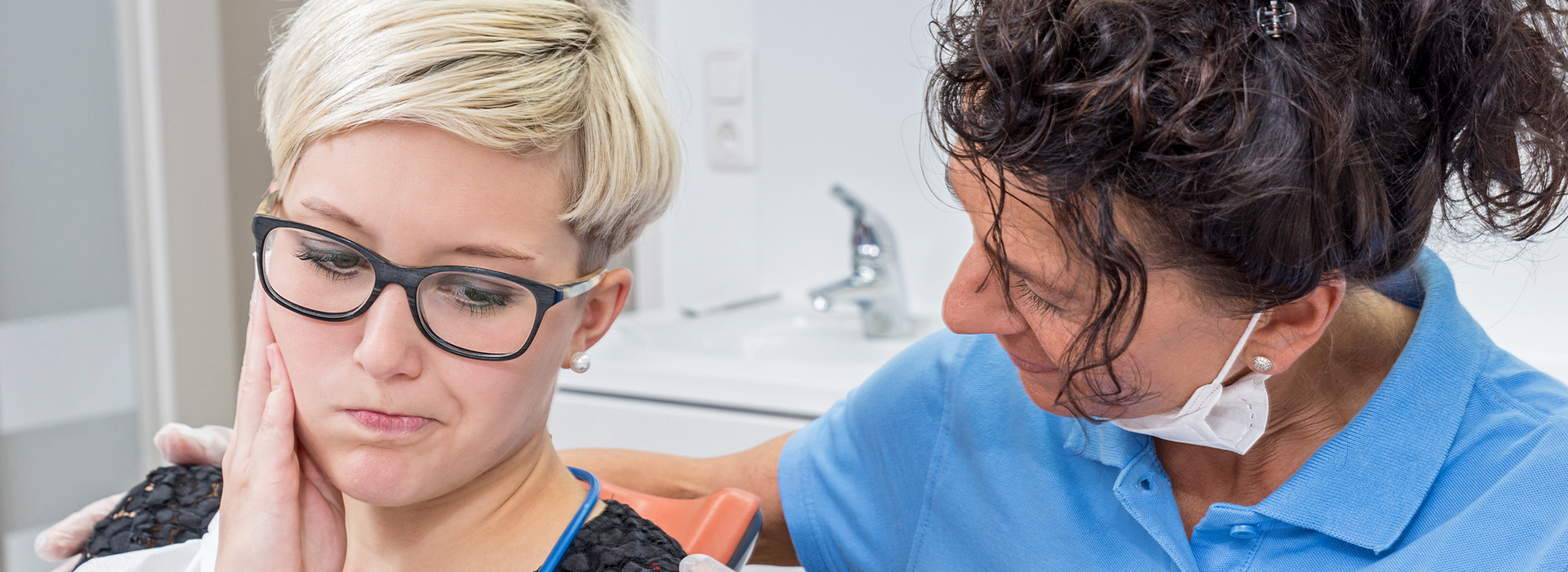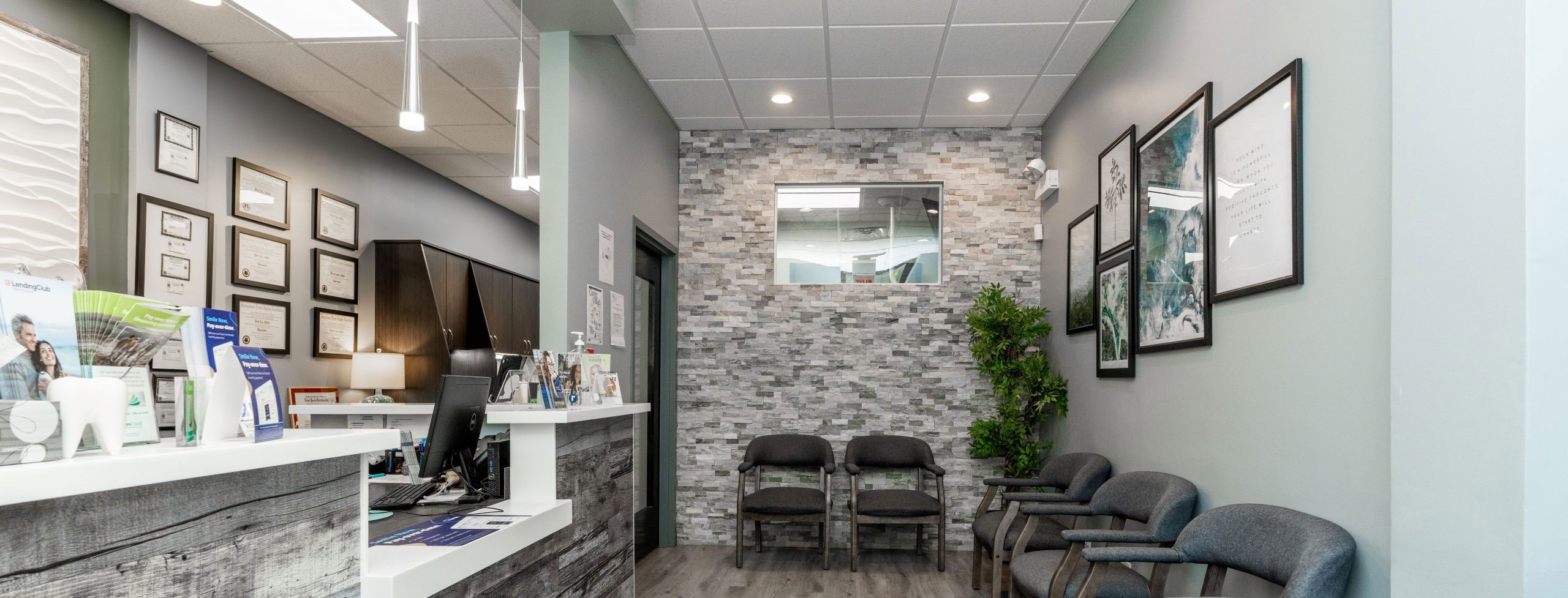New Patients
Existing Patients
New Patients
Existing Patients
New Patients
Existing Patients
New Patients
Existing Patients
New Patients
Existing Patients
New Patients
Existing Patients
New Patients
Existing Patients
New Patients
Existing Patients

Dental emergencies can be alarming and painful, and they often arrive without warning. If you experience intense tooth pain, uncontrolled bleeding, a knocked-out tooth, or sudden swelling of the face or mouth, these are signs that prompt assessment is necessary. Acting quickly can make a real difference in preserving teeth, avoiding complications, and reducing risk to your overall health.
Not every unpleasant sensation in the mouth constitutes an emergency, but there are clear red flags to watch for. Severe, persistent pain that interferes with sleep or daily activities, an injury that leaves a tooth cracked or displaced, or swelling that makes it difficult to breathe or swallow all require urgent evaluation. When in doubt, seeking timely professional guidance is the safest course of action.
Understanding which situations call for same-day care versus those that can wait for a scheduled appointment helps patients respond calmly and effectively. Quick triage and early treatment can relieve pain, prevent infection from spreading, and improve the odds of saving the natural tooth whenever possible.
We begin every emergency visit with a focused assessment to identify the source of pain or dysfunction. A thorough clinical exam, often paired with digital imaging when appropriate, lets us determine whether pain is coming from the tooth, the gum, or surrounding soft tissues. Our primary goals are to control pain, stabilize the affected area, and plan a definitive treatment path.
Comfort and clear communication are central to our approach. Patients receive explanations about findings and options before any procedures begin, and we prioritize interventions that preserve oral health and function. Depending on the situation, immediate measures might include temporary restorations, suturing, drainage of an abscess, or medications to reduce infection and swelling.
When necessary, coordination with medical providers or referral to a specialist is part of our standard protocol to ensure the best outcome. We focus on returning patients to comfort quickly while outlining follow-up care to restore long-term dental health. At Artistic Family Dental, our emphasis is on gentle, evidence-informed emergency care delivered with compassion.
A range of problems commonly brings patients in for emergency treatment. Severe toothaches often result from deep decay or an infected nerve and may require root canal therapy to relieve pain and save the tooth. Fractured or chipped teeth are evaluated for structural damage; depending on severity, care can include smoothing, bonding, or a crown to restore function and appearance.
Knocked-out (avulsed) teeth are time-sensitive; if a tooth can be replanted within a short window and handled properly, it may be possible to save it. Lost or damaged crowns and fillings often make chewing painful or expose sensitive tooth structure, and timely restoration prevents further harm. Deep infections that cause facial swelling or fever require urgent attention to prevent spread and systemic complications.
Other urgent issues we treat include problematic wisdom teeth that cause acute pain or infection, loose or broken dentures that interfere with eating, and soft-tissue injuries in the lips, cheeks, or tongue. Each condition is addressed with a tailored plan that balances immediate relief with long-term stability.
Below are some of the common emergency presentations we manage:
Immediate, simple actions can reduce pain and improve outcomes while you make your way to care. Rinse your mouth gently with warm salt water to keep an injured area clean and to soothe soft-tissue irritation. If a tooth is knocked out, pick it up by the crown (not the root), rinse it briefly if dirty, and keep it moist—ideally by placing it back in the socket or storing it in milk or a saline solution until you arrive.
For bleeding that does not stop, apply gentle pressure with clean gauze or a soft cloth. Use a cold compress on the cheek to minimize swelling and reduce pain after trauma. Over-the-counter pain relievers can help temporarily, but avoid placing aspirin directly on a tooth or gum, as this can cause irritation.
Avoid attempting complex home repairs, such as gluing a broken crown back in place, and do not probe deep wounds or try to remove bone fragments. Time is a critical factor for certain emergencies: a replanted tooth has the best chance of survival when treated quickly, and uncontrolled swelling or breathing problems require immediate medical attention.
Treatment depends on the diagnosis and the extent of damage. Some emergencies are resolved with conservative measures like temporary restorations, prescription medication to control infection and inflammation, or tooth-sparing procedures such as root canal therapy. Other situations may necessitate extraction when a tooth cannot be saved; when that occurs, we discuss appropriate replacement options to restore function and appearance.
Restorative choices after an extraction can include dental implants, fixed bridges, or partial dentures—each with distinct benefits depending on a patient’s oral health, anatomy, and personal preferences. Our goal is to recommend solutions that protect neighboring teeth, preserve jawbone where possible, and rebuild a comfortable, functional bite.
Follow-up care is essential after any emergency treatment. We establish a plan for monitoring healing, completing definitive restorations, and addressing any underlying issues that contributed to the problem. Preventive strategies—such as protective mouthguards for athletes, prompt treatment of decay, and routine maintenance—help reduce the risk of future emergencies.
When an urgent issue arises, timely professional care makes a meaningful difference. Our team is prepared to evaluate, stabilize, and treat dental emergencies so patients can return to daily life with confidence. For more information or to arrange an urgent appointment, please contact us to speak with our office and learn how we can help.


Pain is your body's way of signaling that something is not quite right and though there are many reasons for oral pain, one of the most common complaints and reasons for seeking urgent dental care is a toothache. Whether you simply need a dental filling, a crown, or require a root canal procedure to save your tooth, we'll alleviate your discomfort and restore the look and function of the involved tooth.

Dental trauma can result in a defect as minor as a small chip in tooth enamel to a more extensive and painful crack or fracture. With sufficient force, a tooth can even be displaced or completely knocked out of its socket. With prompt emergency care, many injured teeth can be restored and saved.

The last teeth in your mouth to develop, wisdom teeth often do not have enough room to fully erupt or may be positioned in the wrong direction. These issues can affect your dental health as well as overall well-being. Our office provides skilled care to address the complications caused by problematic wisdom teeth.

A broken or lost dental prosthesis or restoration can cause embarrassing gaps in your smile as well as compromise your ability to eat and speak with ease. If you've lost or broken a dental filling, denture, crown, or other dental appliance, you can rely on our office to perform a prompt repair or provide a durable and cosmetically pleasing replacement as quickly as possible.
At the office of Artistic Family Dental, emergency appointments are always available. Of course, in addition to providing top treatment for dental emergencies, we also welcome patients searching for high quality and affordable care. We offer a complete range of the latest and best cosmetic and dental services for every member of your family.
If you are suffering from a toothache or have sustained a dental injury, it is important to visit the dentist as soon as possible before more serious complications arise. Whether your dental emergency is painful, if it affects the appearance of your smile, or if you suspect that an infection is present, our office will make every effort to see you as promptly as possible for care.
At the office of Artistic Family Dental, we treat your dental emergency as our top priority. Our caring team will respond to your emergency call right away, making sure you get the gentle, state-of-the-art care you need without delay.
As your trusted emergency dentist in HighlandScherervilleChicago HeightsHazel Crest, we provide the highest quality of care to mitigate the stress, anxiety, and discomfort of dental problems. Our dedicated team will help you start feeling better as soon as we receive your emergency call.
At the office of Artistic Family Dental, we provide skilled and experienced care to effectively resolve a broad range of dental emergencies, restoring a patient's oral health while protecting their overall wellbeing.
However, even so, specific dental emergencies pose significant threats to one's health. These situations require immediate, emergency room care. Serious and potentially life-threatening dental emergencies include significant oral and facial trauma such as jaw fractures, deep wounds or lacerations to the face and mouth, an abscess or infection that causes widespread facial or submandibular swelling, or affects breathing and swallowing.
At the office of Artistic Family Dental, we provide prompt, skilled, and experienced care to address dental emergencies. We understand that finances are always a concern and do our best to provide options in care that are both affordable and respect your budget.
Once we've had the opportunity to examine your smile, we can give you a clear picture of any existing dental issues, along with a quote for what the cost of treatment will be. The cost of care all depends upon the extent and complexity of issues affecting the health or appearance of your smile and the types of procedures that are required.
To help alleviate any additional stress or delay, you can count on our staff to work with you to optimize coverage for your dental care and to minimize your out-of-pocket expenses. For patients without insurance, we strive to make things easier as well! We invite you to visit our financial information page or speak to an expert in our business office.
Dental emergencies are often painful and debilitating experiences. For this reason it's important to have an emergency dentist in HighlandScherervilleChicago HeightsHazel Crest, who welcomes patients with urgent dental needs while providing the prompt care required to restore oral health.
Here are just some of the reasons why so many patients choose our office for emergency dental care and to meet their family's dental needs:
We're dedicated to helping patients enjoy good oral health and beautiful smiles. We look forward to helping you keep your smile in tip-top condition. You can rest assured that our highly skilled office team will provide you the highest quality of state-of-the-art dental care and have you smiling again in no time!
To make an appointment or for more information on our office and the many state-of-the-art services we provide, give us a call today.
A dental emergency is any oral condition that requires immediate assessment to prevent serious harm, prolonged pain, or permanent tooth loss. Common red flags include intense, persistent tooth pain, uncontrolled bleeding, a tooth that has been knocked out, and sudden facial or mouth swelling that interferes with breathing or swallowing. Time-sensitive situations demand same-day evaluation because early treatment can reduce complications and improve the chance of saving the natural tooth.
Not all oral discomfort is an emergency, but certain symptoms — such as severe pain that disrupts sleep, visible trauma to a tooth, or fever with swelling — warrant urgent attention. When you are unsure whether a problem is urgent, seeking professional guidance is the safest option to determine the proper next steps. Quick triage helps prioritize care, control infection, and limit damage to surrounding tissues.
If a permanent tooth is knocked out, time is the most critical factor for saving it. Handle the tooth by the crown only, rinse it gently with water if dirty, and avoid scrubbing or touching the root surface. If possible, reinsert the tooth into the socket and hold it in place, or keep the tooth moist by placing it in milk or a saline solution until you can get to the office.
Avoid wrapping the tooth in tissue or letting it dry out, and do not attempt to force a badly broken tooth back into position. Bring the tooth and any fragments with you to the emergency visit and get to care as quickly as possible, as successful replantation chances decline rapidly with time. Prompt professional evaluation will determine whether replantation, splinting, or another intervention is appropriate.
Over-the-counter pain relievers taken according to the label can help control discomfort temporarily, and a cold compress applied to the cheek can reduce swelling after trauma. Rinsing gently with warm salt water helps keep the area clean and soothes soft tissue, but avoid placing aspirin or other medications directly on a tooth or gum because that can cause tissue irritation. Maintain an upright position when possible, and avoid chewing on the affected side to prevent further damage.
Home measures are intended only to bridge the time until professional care and will not resolve underlying infections or structural problems. If pain is accompanied by fever, facial swelling, difficulty breathing, or spreading redness, seek immediate care because these signs suggest a worsening infection or systemic involvement. Contact the dental office for guidance about same-day availability and next steps.
Facial swelling that progresses rapidly, causes difficulty breathing or swallowing, or is accompanied by high fever should be treated as a medical emergency and evaluated without delay. These symptoms can indicate a spreading infection that may affect the airway or other vital structures, and they may require hospital-level intervention in addition to dental care. Mild localized swelling after minor trauma or localized infection can often be managed in a dental setting, but monitoring is essential.
Any swelling with systemic signs such as chills, malaise, or fever requires urgent assessment and often professional drainage and antibiotic therapy. Early professional treatment reduces the risk of the infection spreading and helps preserve surrounding teeth and tissues. When in doubt, seek same-day evaluation to ensure safe and appropriate care.
Begin by collecting any tooth fragments and rinsing your mouth with warm water to clear debris and reduce contamination. If there is bleeding, apply gentle pressure with clean gauze; if a fractured edge is sharp, protect your tongue and cheek by placing sugarless chewing gum or dental wax over the area until you can be seen. Avoid biting down on the affected tooth and stick to soft foods to prevent additional damage.
A same-day dental assessment is important to determine the extent of structural damage and the appropriate treatment, which may include smoothing, bonding, or placing a crown. If the pulp is exposed or pain is severe, endodontic treatment such as a root canal may be necessary to save the tooth. Early stabilization reduces the chance of infection and improves long-term prognosis.
Emergency management begins with a focused clinical exam and, when indicated, radiographs to locate the source and extent of infection. Treatment often includes drainage of any localized abscess, prescription antibiotics to control bacterial spread, and medications to address pain and inflammation. Immediate steps may relieve symptoms and reduce systemic risk while a definitive plan is developed.
Definitive care depends on the diagnosis and can include root canal therapy to remove infected tissue or extraction if the tooth cannot be saved. Follow-up appointments are essential to complete restorative work and monitor healing, and coordination with medical providers may be necessary if systemic involvement or complex medical conditions are present. Early treatment limits complications and protects overall health.
If a crown or filling becomes dislodged, gently clean the area with warm water and save the restoration if possible, bringing it with you to the appointment. You can temporarily cover exposed tooth structure with a small piece of sugarless chewing gum or a dental temporary material available at many pharmacies, but avoid using household glues or permanent adhesives. Eating on the opposite side and avoiding sticky or hard foods helps prevent further damage until you can be evaluated.
Prompt dental attention protects the underlying tooth from decay, sensitivity, and infection that can worsen over time. The dentist will assess whether the restoration can be reseated, repaired, or needs replacement and will recommend appropriate steps to restore function and protect adjacent teeth. Timely care simplifies treatment and improves outcomes.
The likelihood of saving a tooth depends on the type and severity of the injury or infection and how quickly you receive care. Many urgent conditions, such as certain fractures, deep decay with an abscess, or a knocked-out tooth replanted promptly, can be treated successfully with procedures like root canal therapy, bonding, or splinting. Early intervention improves the odds of preserving the natural tooth and avoiding extraction.
When a tooth is nonrestorable due to extensive damage or severe infection, extraction may be the safest option to protect overall oral health. If extraction is required, the dental team will discuss replacement choices, such as dental implants, bridges, or partial dentures, and outline a timeline for restorative care. Follow-up and preventive measures are important to reduce the risk of future emergencies.
You should go to the hospital emergency room if an oral or facial problem involves airway compromise, uncontrolled bleeding that does not stop with direct pressure, major facial trauma, or systemic signs such as high fever and confusion. These situations require immediate medical stabilization and may involve multiple specialties to secure breathing and manage life-threatening conditions. The ER can provide intravenous antibiotics, airway support, and imaging for significant trauma before dental specialists assume definitive care.
For severe dental pain, localized swelling without airway issues, or a knocked-out tooth, contacting your dental office for same-day evaluation is usually appropriate. The dental team can often manage urgent dental needs and coordinate hospital referral if they identify a situation that exceeds the office scope of care. When in doubt about danger signs, err on the side of emergency medical evaluation.
An emergency visit typically begins with a focused history and clinical examination to identify the source of pain or dysfunction, followed by any necessary imaging to clarify the diagnosis. The immediate objectives are to control pain, stabilize the area, and reduce infection or bleeding, which can involve temporary restorations, drainage, suturing, or medications. Throughout the visit you should receive clear explanations of findings, proposed treatments, and what to expect for follow-up care.
After initial stabilization, the team will outline definitive treatment options and a timeline for completing restorative work or additional procedures. At Artistic Family Dental we emphasize compassionate, evidence-informed emergency care and work with you to plan next steps, whether that involves endodontic therapy, extraction, or coordination with a specialist. Follow-up appointments are scheduled as needed to complete treatment and monitor healing.

Ready to schedule your next appointment or learn more about our services?
Our friendly team is here to make it easy. Whether you’d like to call, email, or use our convenient online form, we’ll help you find the right time and answer any questions you have. Don’t wait to take the next step toward a healthier, more confident smile—contact Artistic Family Dental today and experience the difference genuine, personalized care can make.